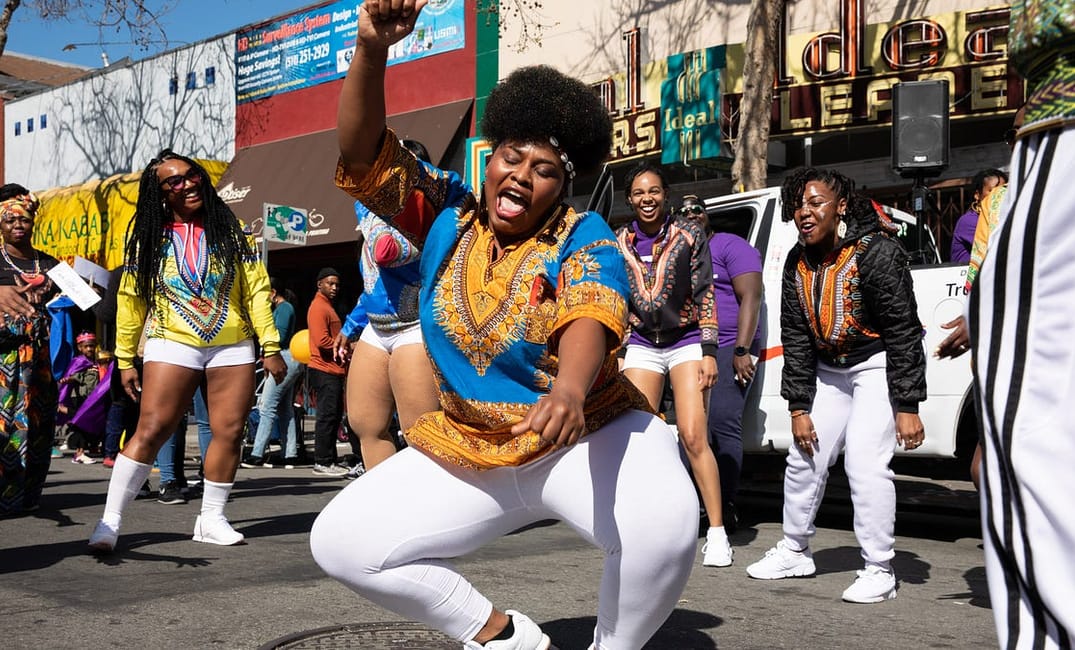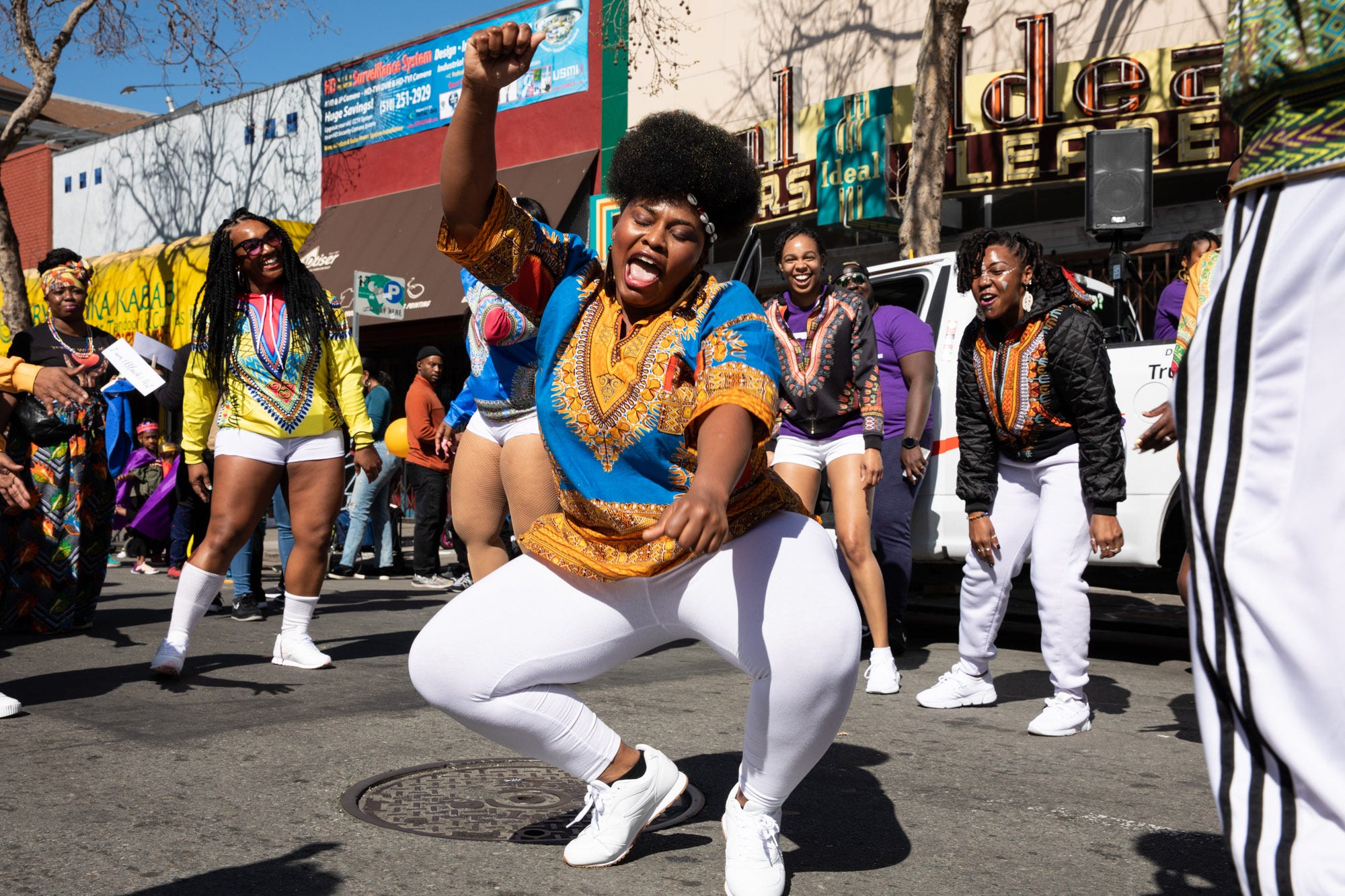
On Sunday, thousands of Black people and allies gathered downtown Oakland for Black Joy Parade—a reunion that felt more timely and important than ever due to the continuous erasure of Black people in this ever-gentrifying city.
The parade, in its third year, honors Black achievement, influence, and joy—it was a necessary reminder of our resilience in adversity. As someone with a long family history in Oakland myself, the sight of my brothers and sisters taking up space in a city whose culture we’ve had a hand in creating, served as a statement that we still belong here.
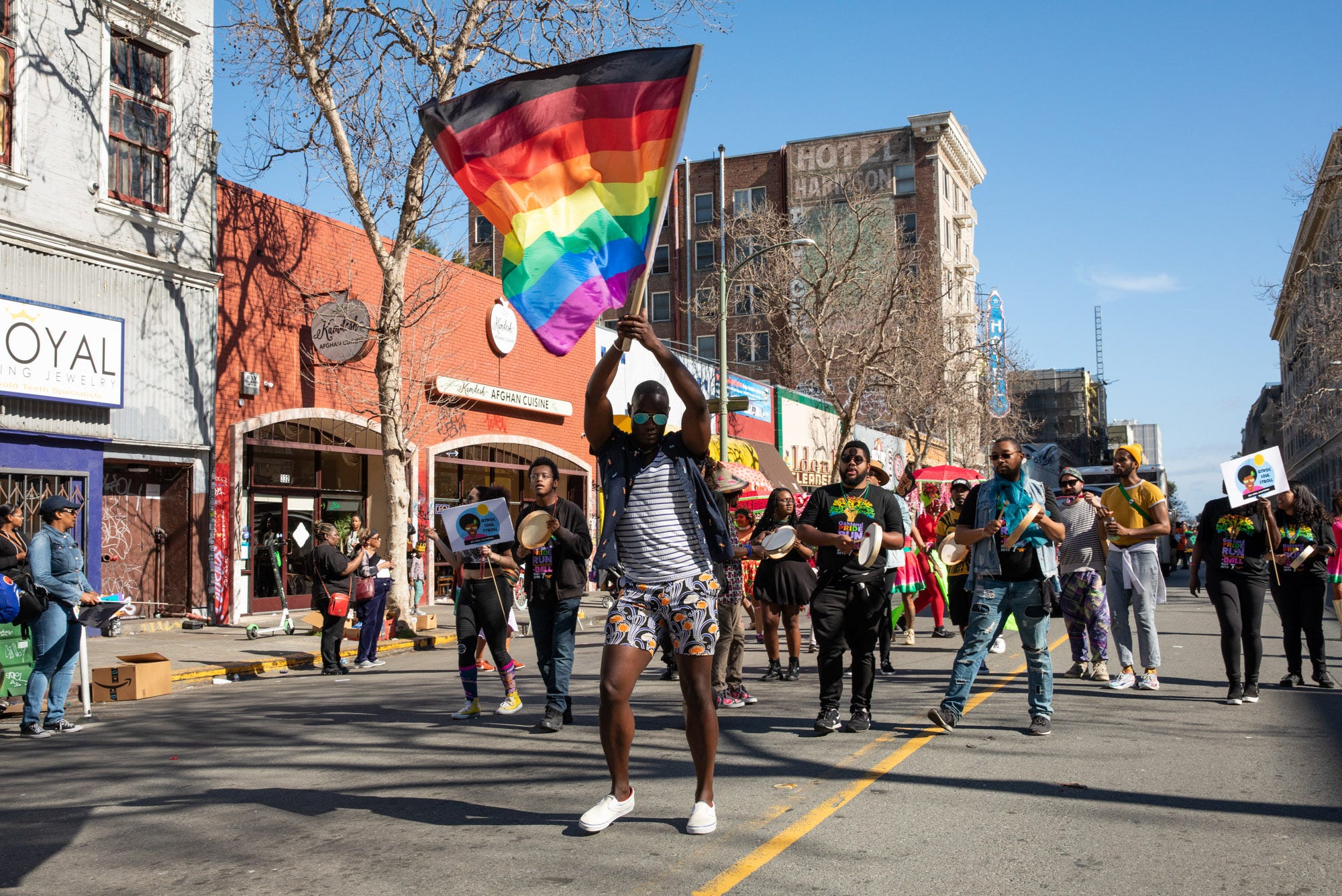
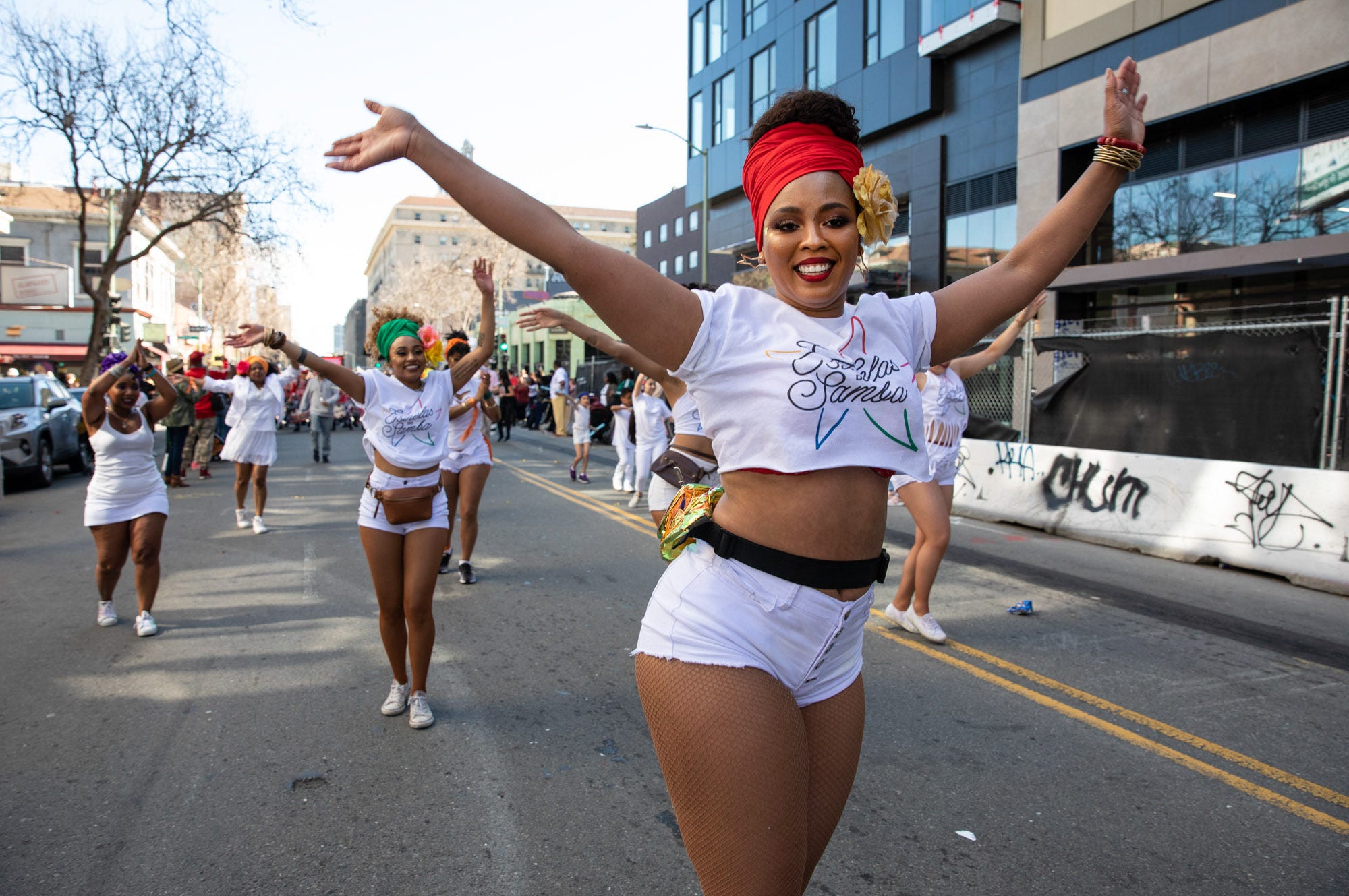
Oakland’s housing crisis coupled with increasing gentrification disproportionately affect the city’s Black population and have resulted in pushing out a once plentiful community that has made the city what it is. At the height of its Black population in 1980, Oakland was 47% Black. Now, that number has dropped to just under 25% (yet we represent 70% of the homeless population.)
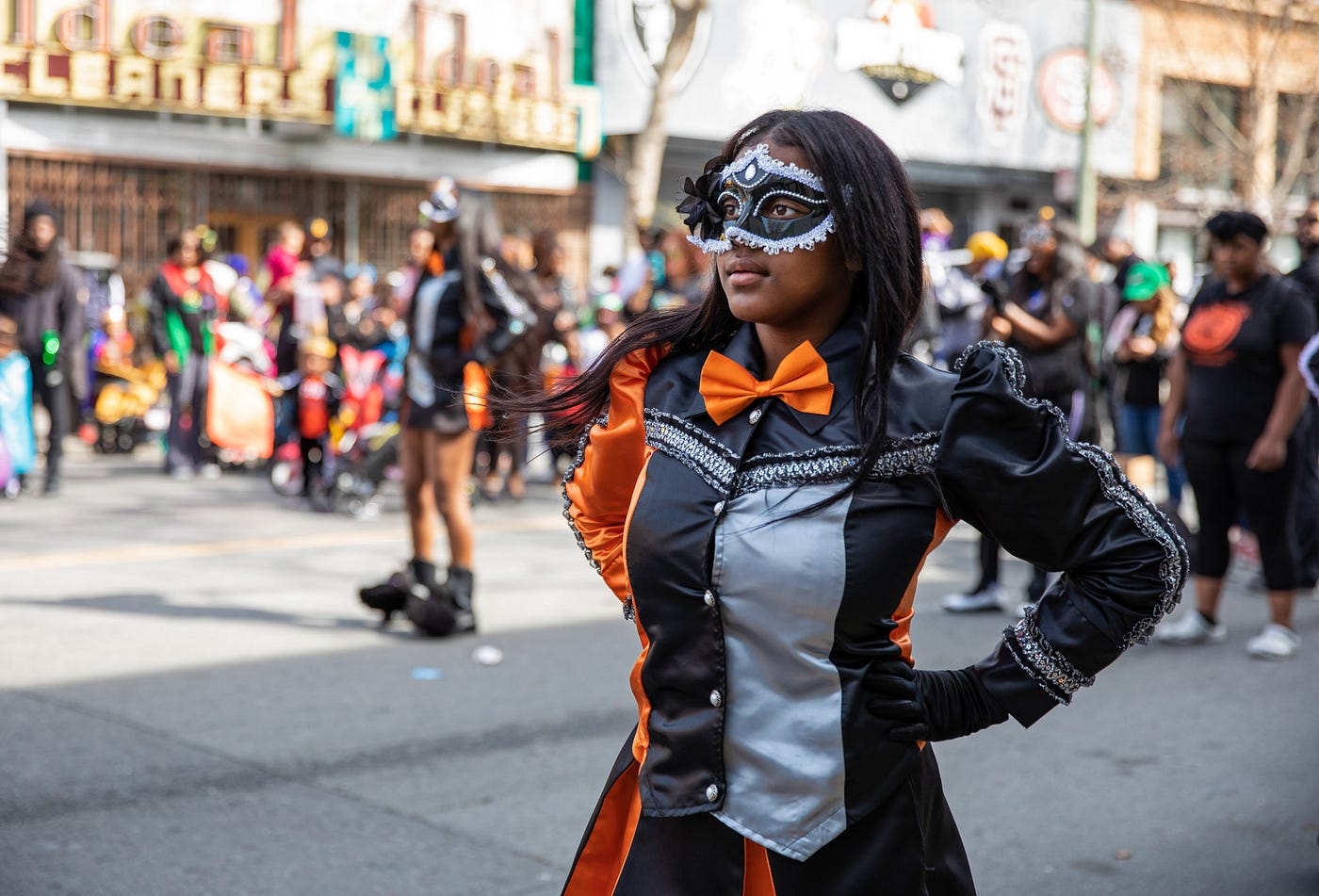
With the theme “Free Your Joy,” the parade included historically Black fraternities and sororities, Girl Scouts, Black cowboys and cowgirls, and in the crowd, more than 20,000 people from across the Bay Area who cheered and danced alongside performers.
While I am no longer an Oakland resident, my occasional visits back to the city where I was born and where I spent so many years living always feel like a homecoming.
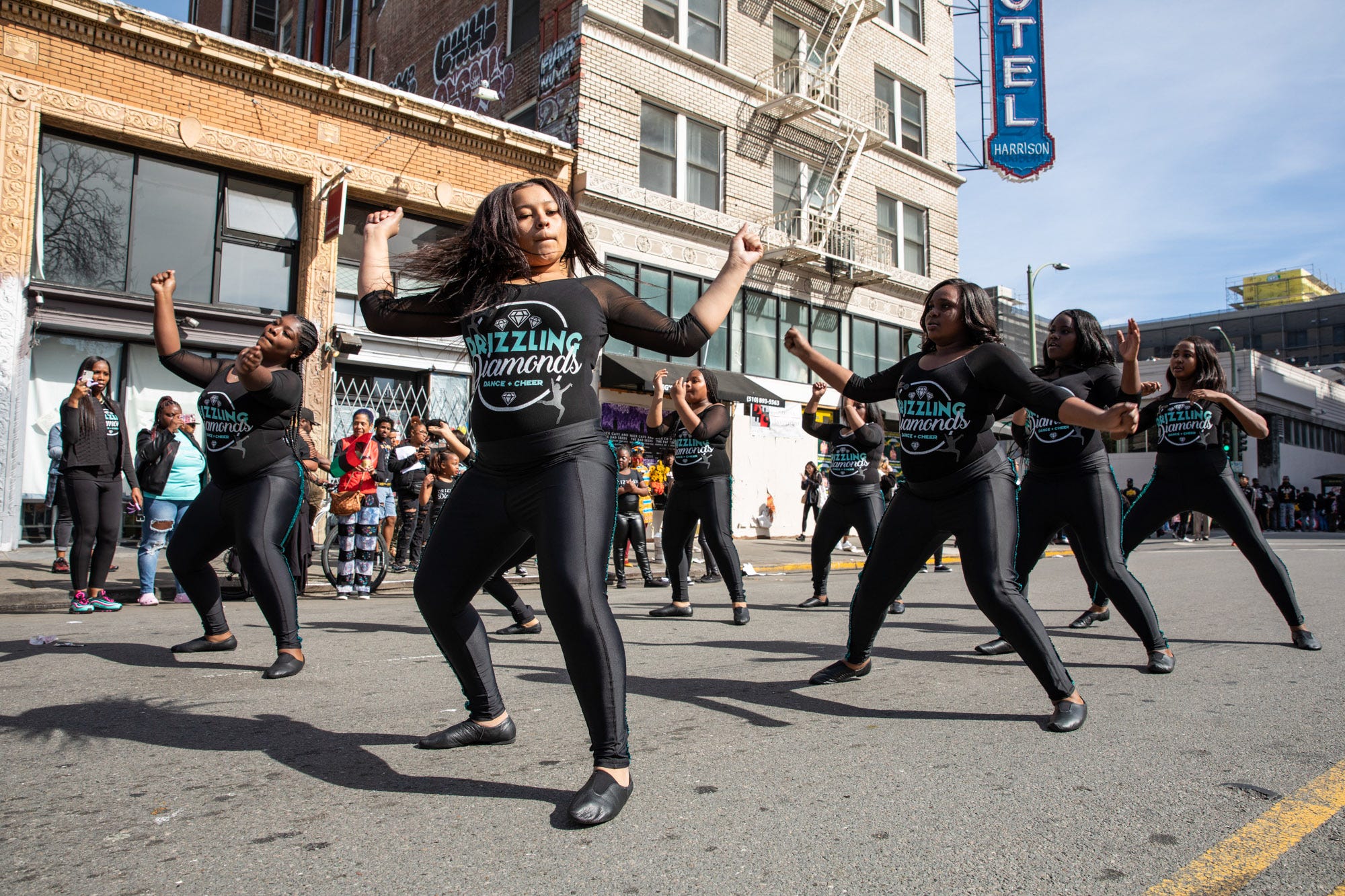
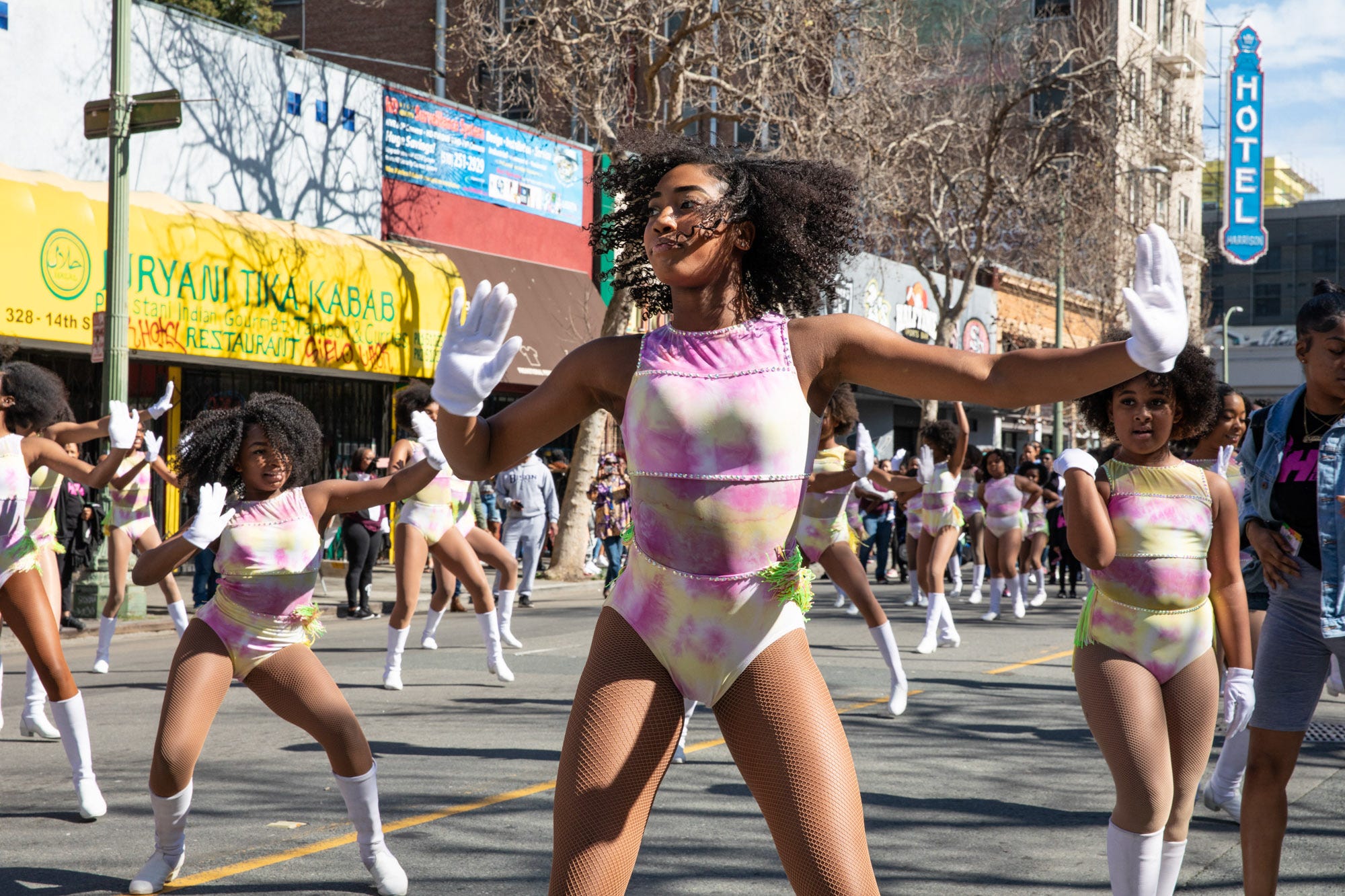
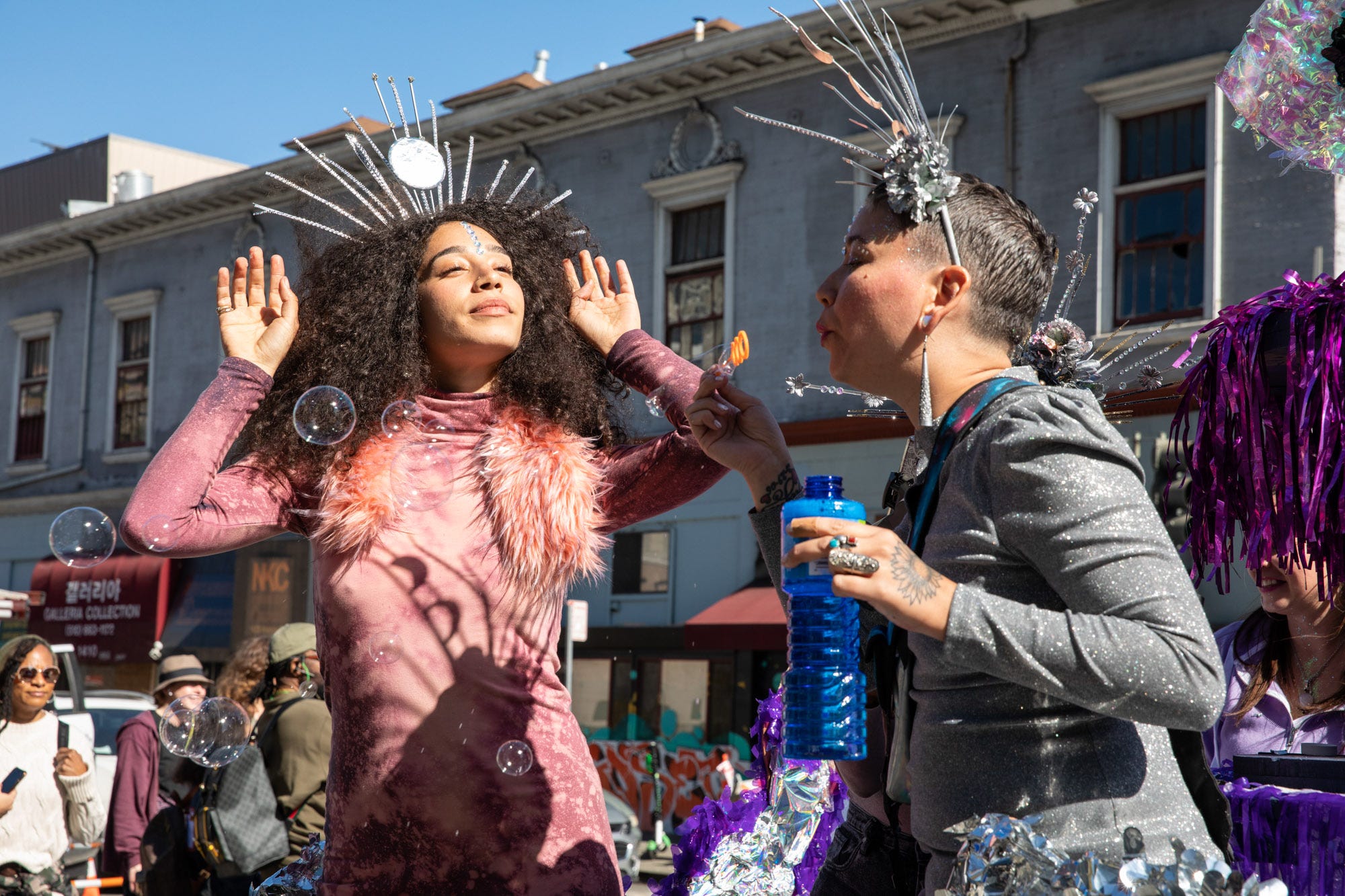
This visit was especially important as I was able to talk to those in attendance about why this celebration was so important to The Town. Here’s what they had to say.
Megdi Adebe, 25, and Kenya Trammel, 25
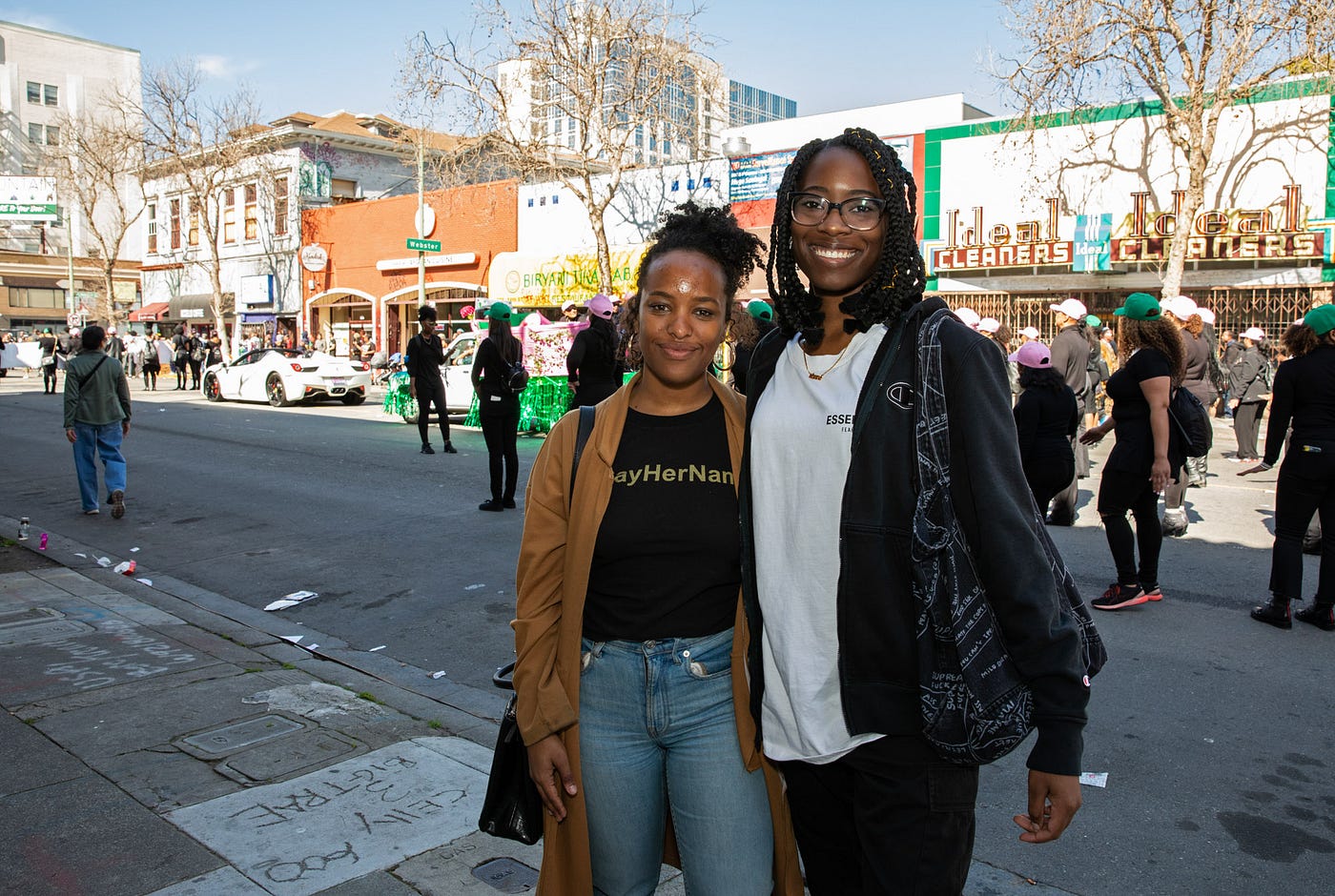
“There’s such a rich history of fighting for justice and fighting against oppression that’s just so unique to Oakland and the Bay Area, so it’s super powerful to maintain those traditions and legacies and remember that we can uphold those histories, which we’re doing today.” — Megdi Adebe
“Preserving our culture is something that always needs to be valued in order to never forget where it all started from because, over time, it could possibly be erased. Events like this really keep movements alive.” — Kenya Trammel
Jacquelyn Lethridge, 38, and Alanna Shipley, 34
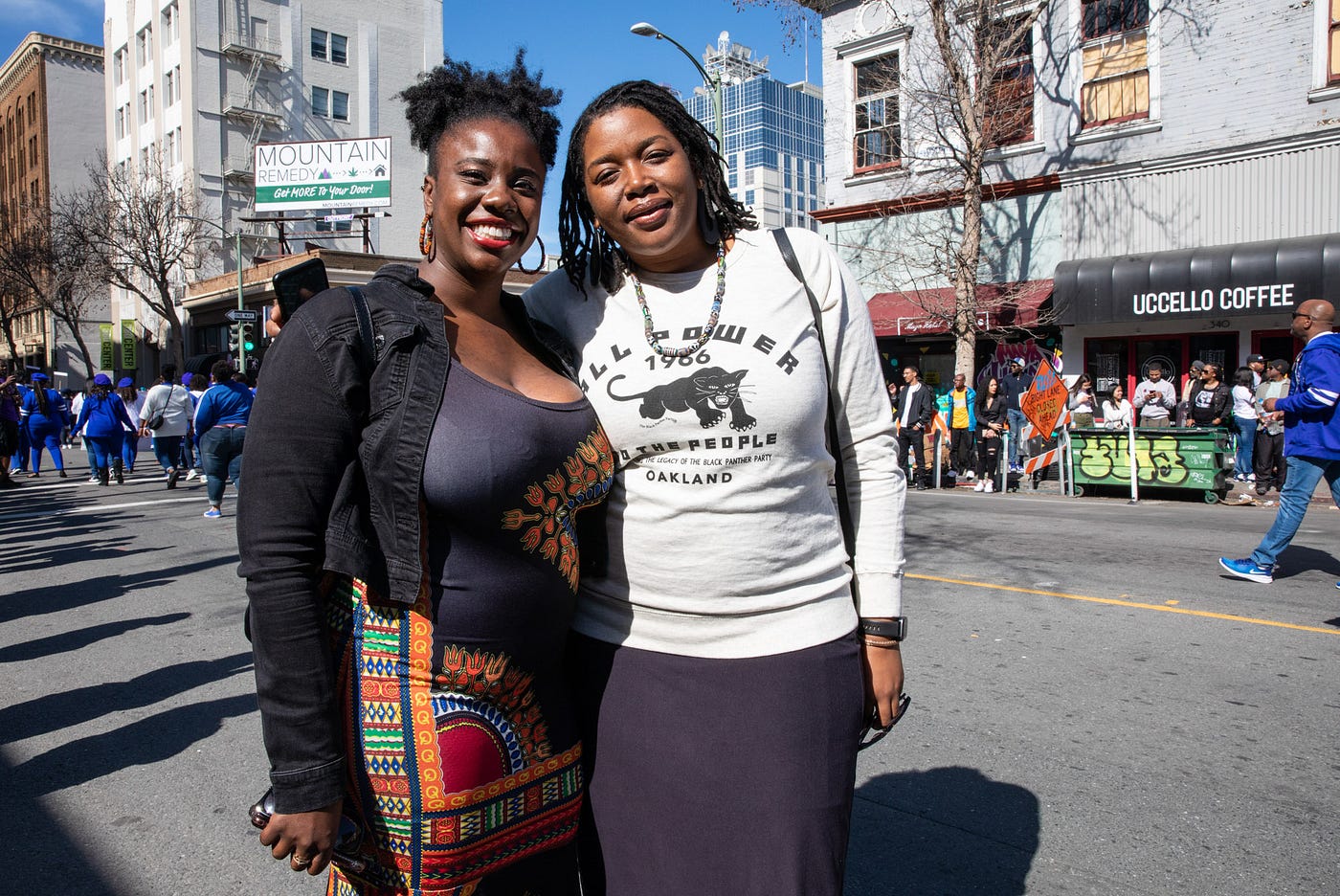
“The news stations need to be here to see positive images of Black men, women, kids, grandparents, scholars, and people in school or those who just graduated. They need to see this positive influence on our community. That’s why it’s important to me, especially being born and raised here.” — Jacquelyn Lethridge
“The reason these events are so big is because while you can see us being pushed out, it shows we’re still here, still big, and our voices are still being felt. I find it to be especially important because we don’t get many of these moments on a day-to-day basis.” — Alanna Shipley
Dominique Bonilla, 31, and Jermaine Hughes, 36
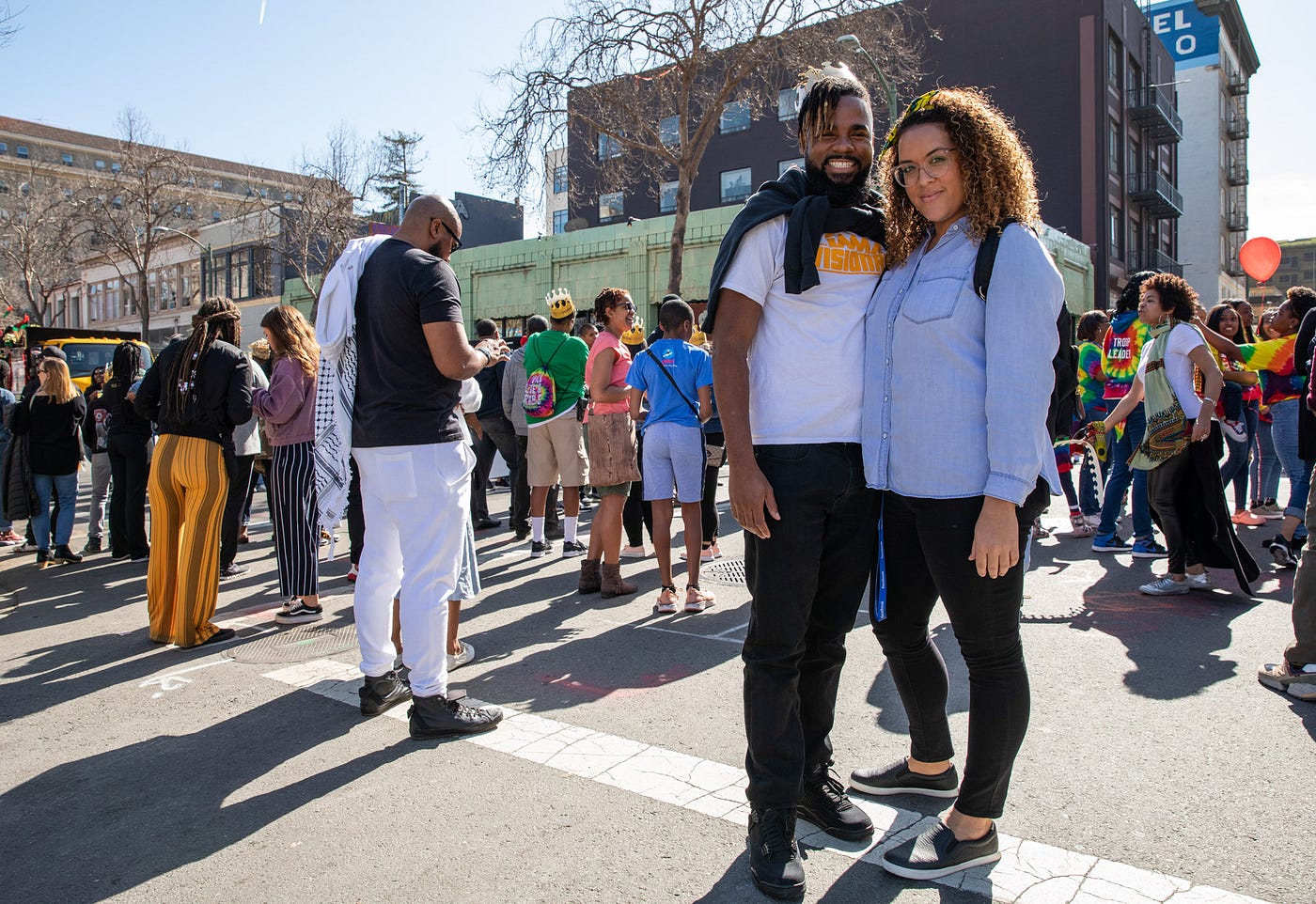
“I feel like this parade is really important, especially being here in Oakland right now with all the gentrification that’s happening and Black and brown people being pushed out. Having this space to celebrate Black people and culture is critical right now.” — Dominique Bonilla
“This is something that’s not only needed but desired as well in the community. Growing up in Oakland, we had events when I was younger, then everything stopped because of the violence and gangs. To have these events and everyone show up in mass and nothing go wrong is definitely a blessing.” — Jermaine Hughes
Andreya Carrington, 50
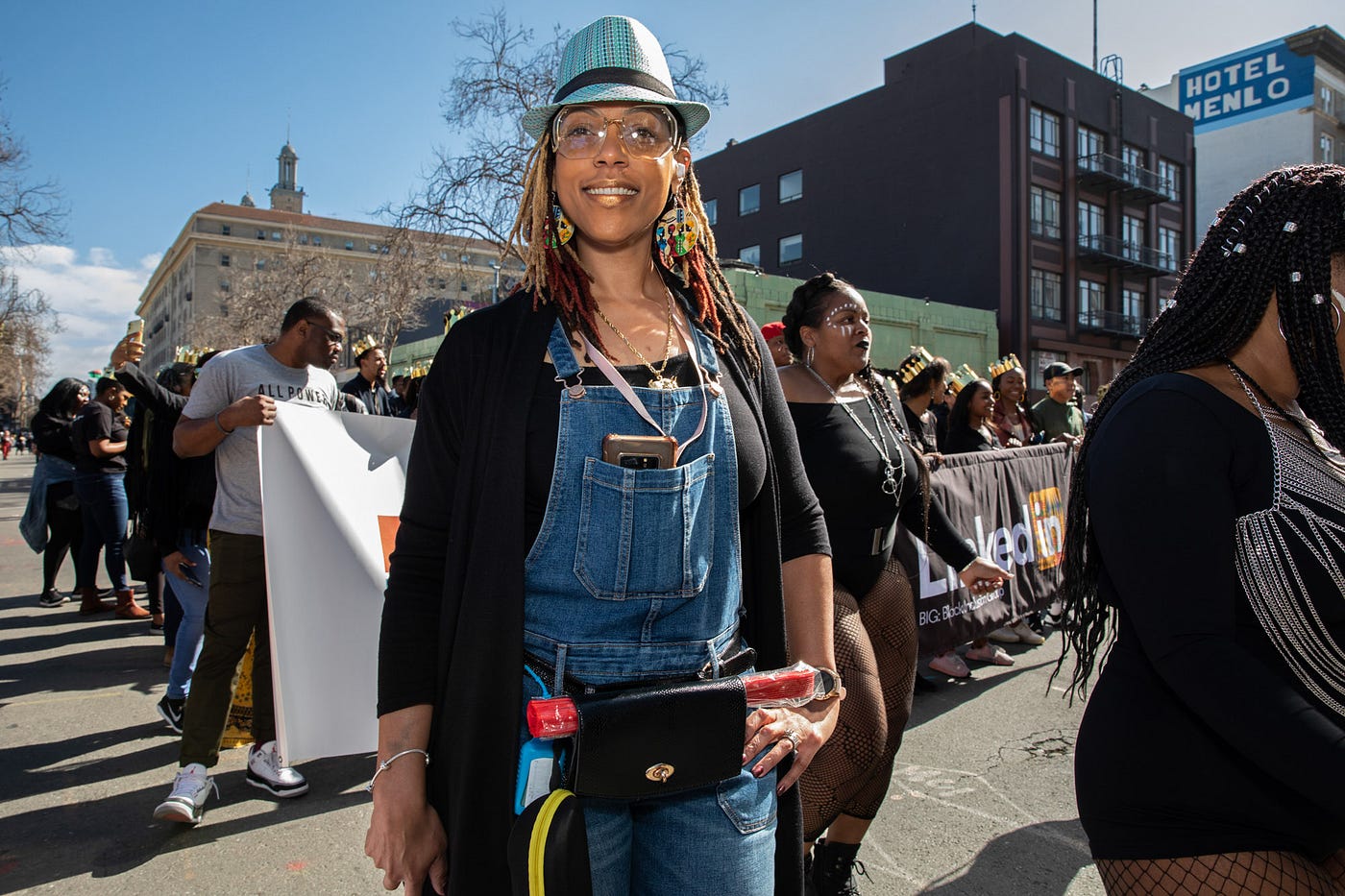
“I think this is really important right now because there is a lot of homelessness happening and unaffordable housing. I actually grew up in Oakland and then moved to Atlanta. When I came back, I couldn’t believe how expensive it was, so I just think that we as a people need to stick together to prevent gentrification.” — Andreya Carrington
Kareem Hearse, 40

“We’re going through such a transition with gentrification, so I think it’s super important just to show the community that we’re still about them here in Oakland. It’s not just about the rich people coming in and the tech companies moving us out of Uptown. We still get together, showing that we’ve got our presence and we’re trying to do some things for our own community.”—Kareem Hearse
Ellison Weeks, 37
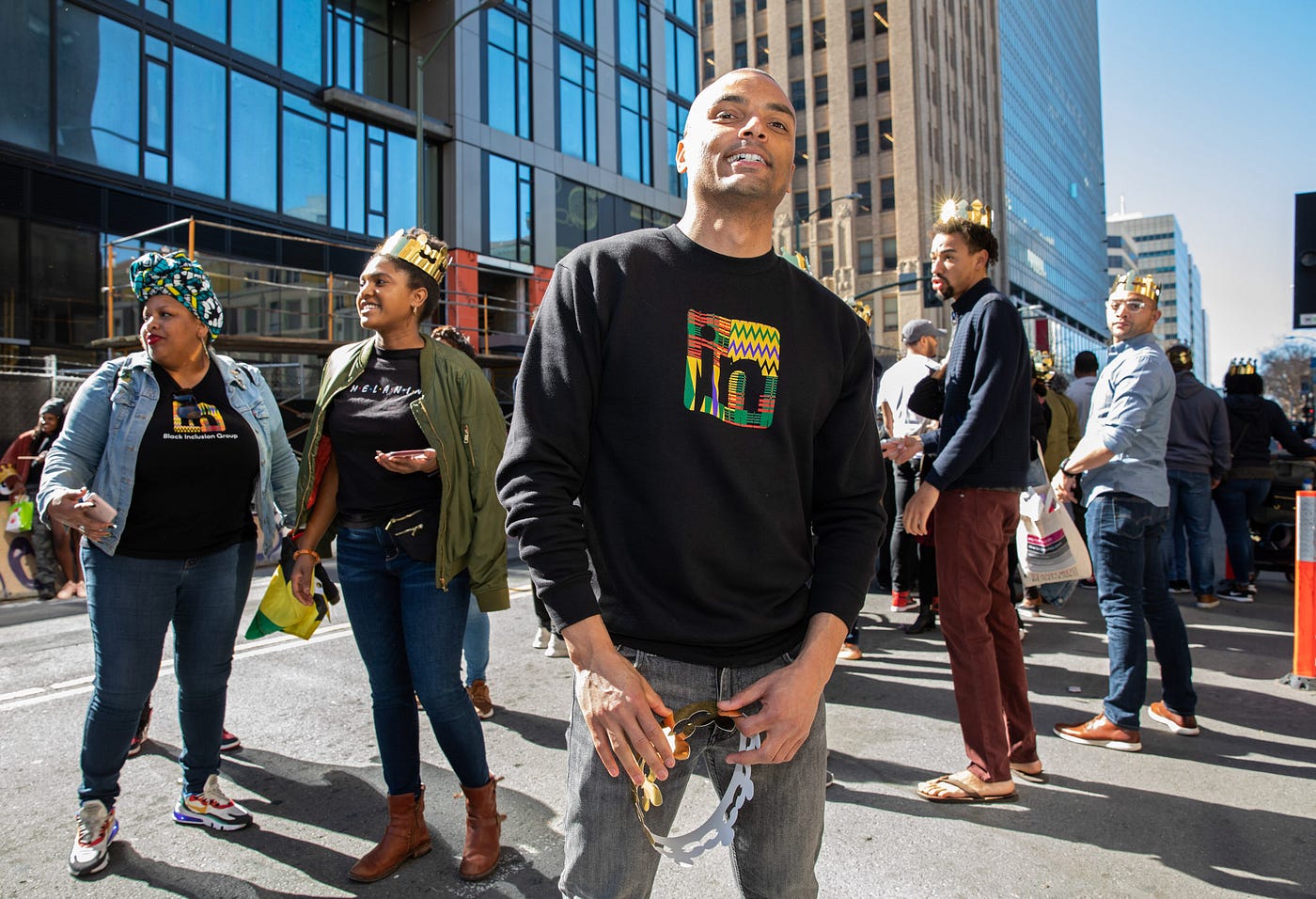
“I think it’s important that we celebrate each other and that we all come together because the more united we are, the more we’ll be able to stand against a lot of the forces against gentrification and displacement and the other challenges we face as a community.” — Ellison Weeks
Quinton Pete, 34
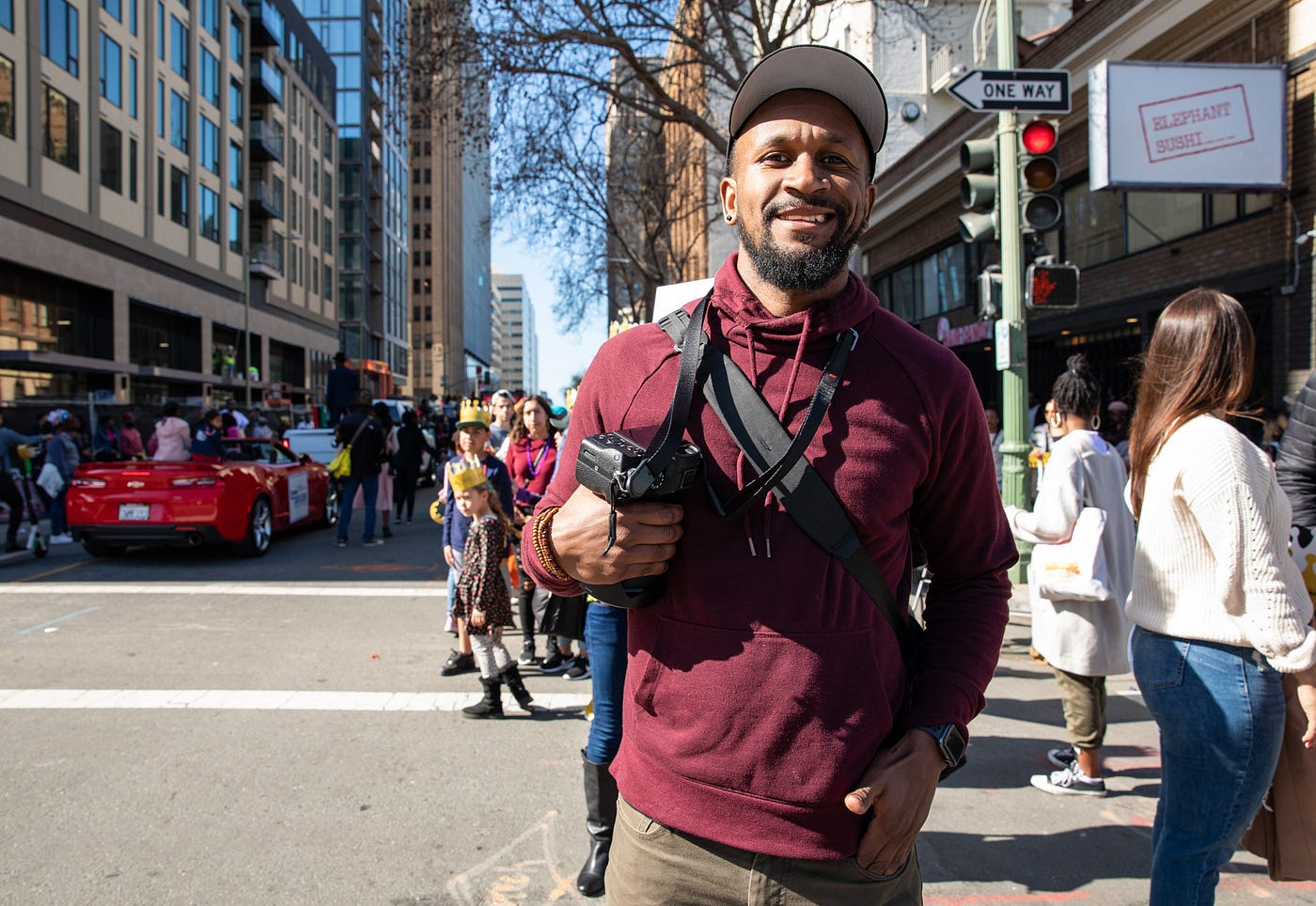
“I don’t think we have enough Black joy, especially in the Bay Area. Oakland is literally the only place where I can find a lot of my people around, so this is the perfect time for all of us to come around and I can see all of my Black people. We need as much positivity in our culture as possible because the world is against us.” — Quinton Pete
Tiffany Anderson, 41

“I think it’s important for the kids in the community to come together to see the unity in our community and to show our kids togetherness, support, and culture, so that they can grow up feeling a sense of security. It’s important to share and educate and let your kids experience these things we were able to experience growing up.”—Tiffany Anderson
Stetson Hines, 30
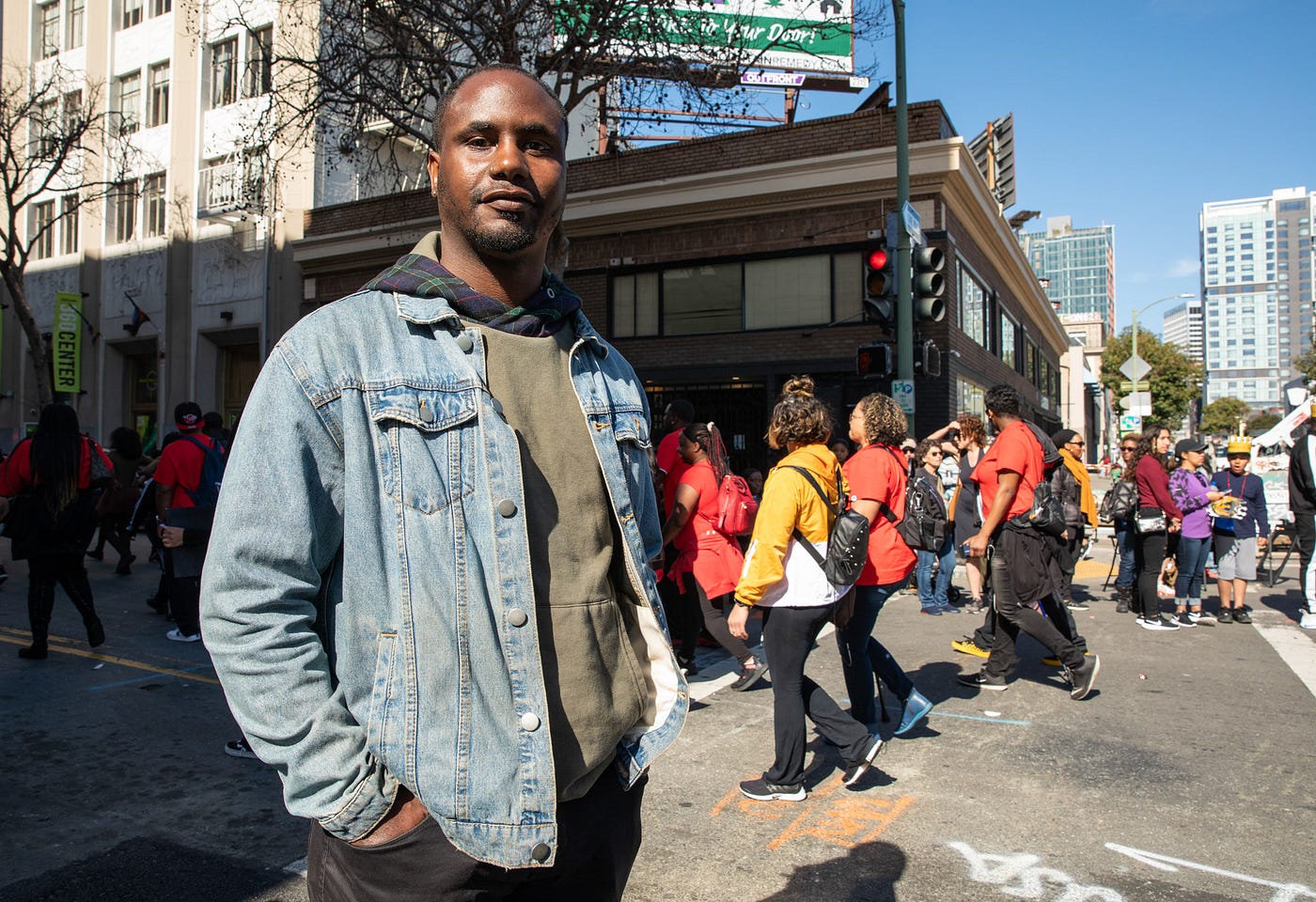
“This event is especially important for African Americans right now at a time where there’s not a lot of unification due to displacement and gentrification. Solidarity is important in the African American community and especially in February during African American history month; it’s even more important for us to stay grounded and rooted in some type of platform, and this is a great event to participate in.”—Stetson Hines
Crystal Todoroff, 26
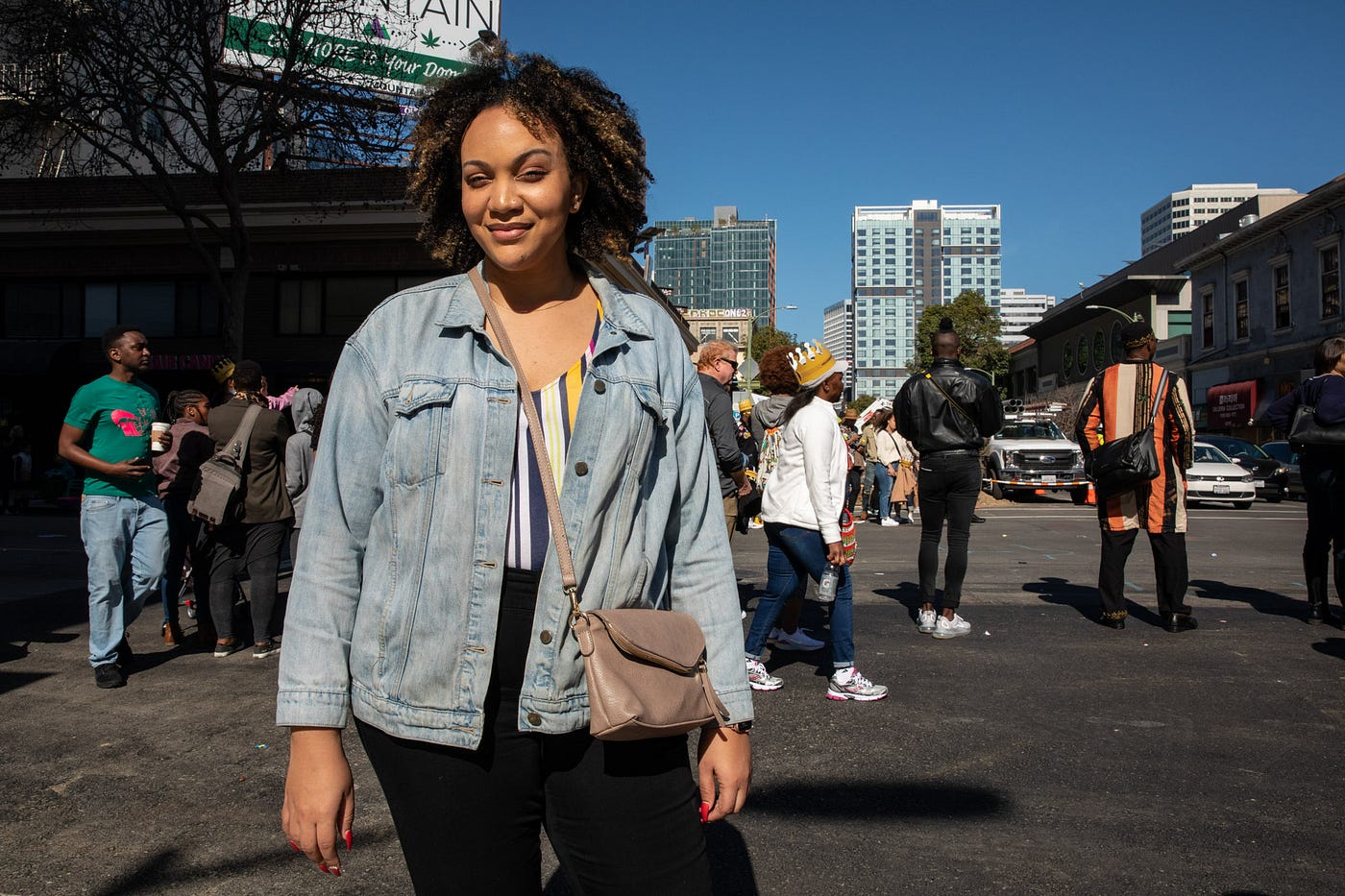
“Oakland is a sight for abuse from the government with the ways that laws are made all the way from micro issues to macro issues, like rent control. I think it’s important for Black people to gather together and actually show that we get to hold it down and fight for a land that is historically Black as far as we can remember it.”—Crystal Todoroff
Princton Brenna, 32, and Steven “Ven” Robinson, 27
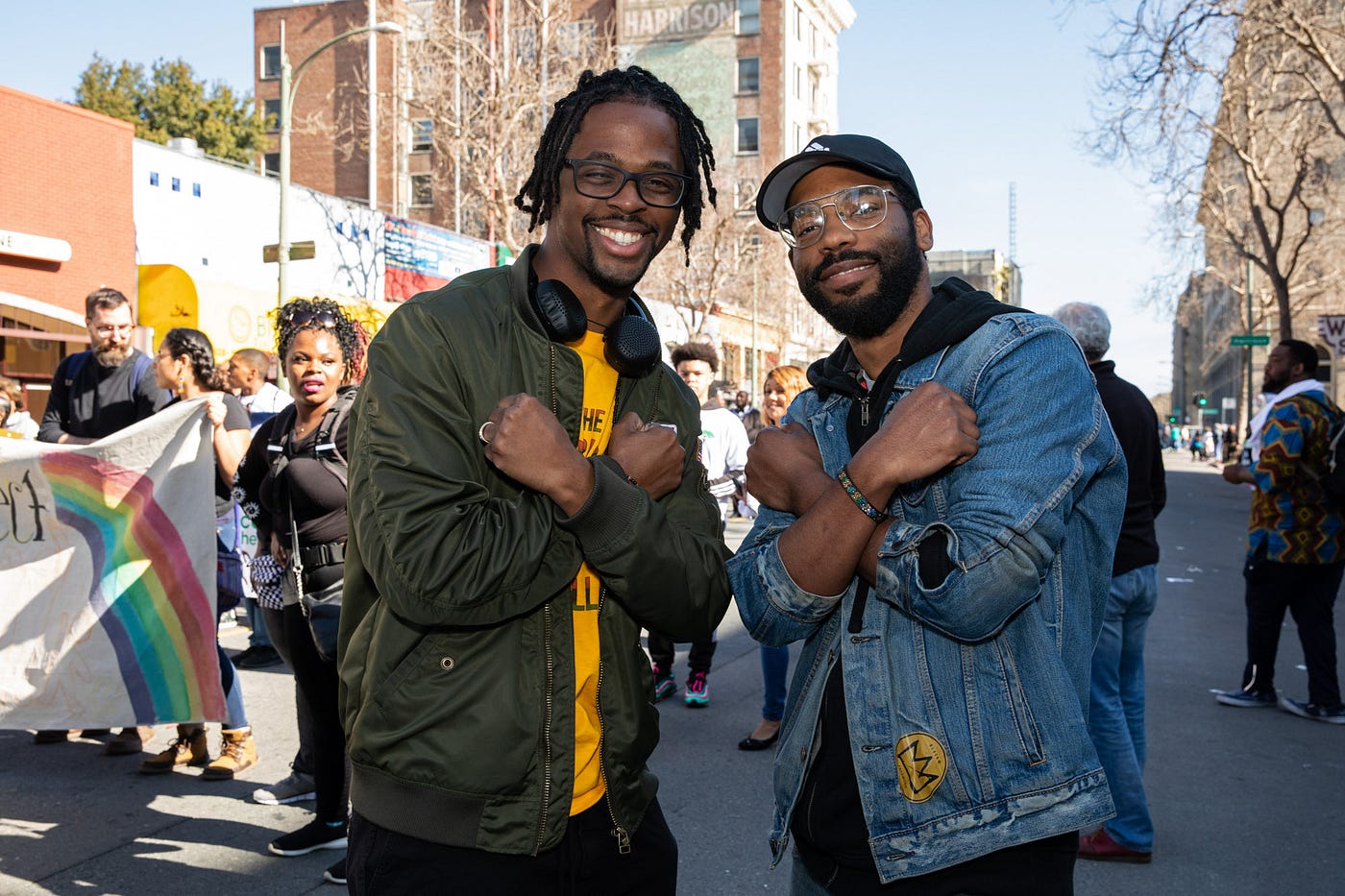
“With Oakland being mostly historically Black, it’s nice to see us in mass and not be so chaotic or violent, just a positive vibe the whole time. That’s why I’m happy to see it here, so that when people are coming in making excuses to try to gentrify we can fight against it and say ‘Look, this is a perfect example of why you shouldn’t do this.’”— Princton Brenna
“I feel like it’s important for every culture to celebrate for the purpose of celebrating, especially with Black people who can get caught up in the hostilities, problems, and just the stuff that bogs you down. We need something to offset that because there’s two sides of the spectrum. You have to bring your awareness to stuff that might not be the happiest of things, but you also have to celebrate that you’re here breathing and here to be happy.”— Steven “Ven” Robinson
Judy Fleming, 72
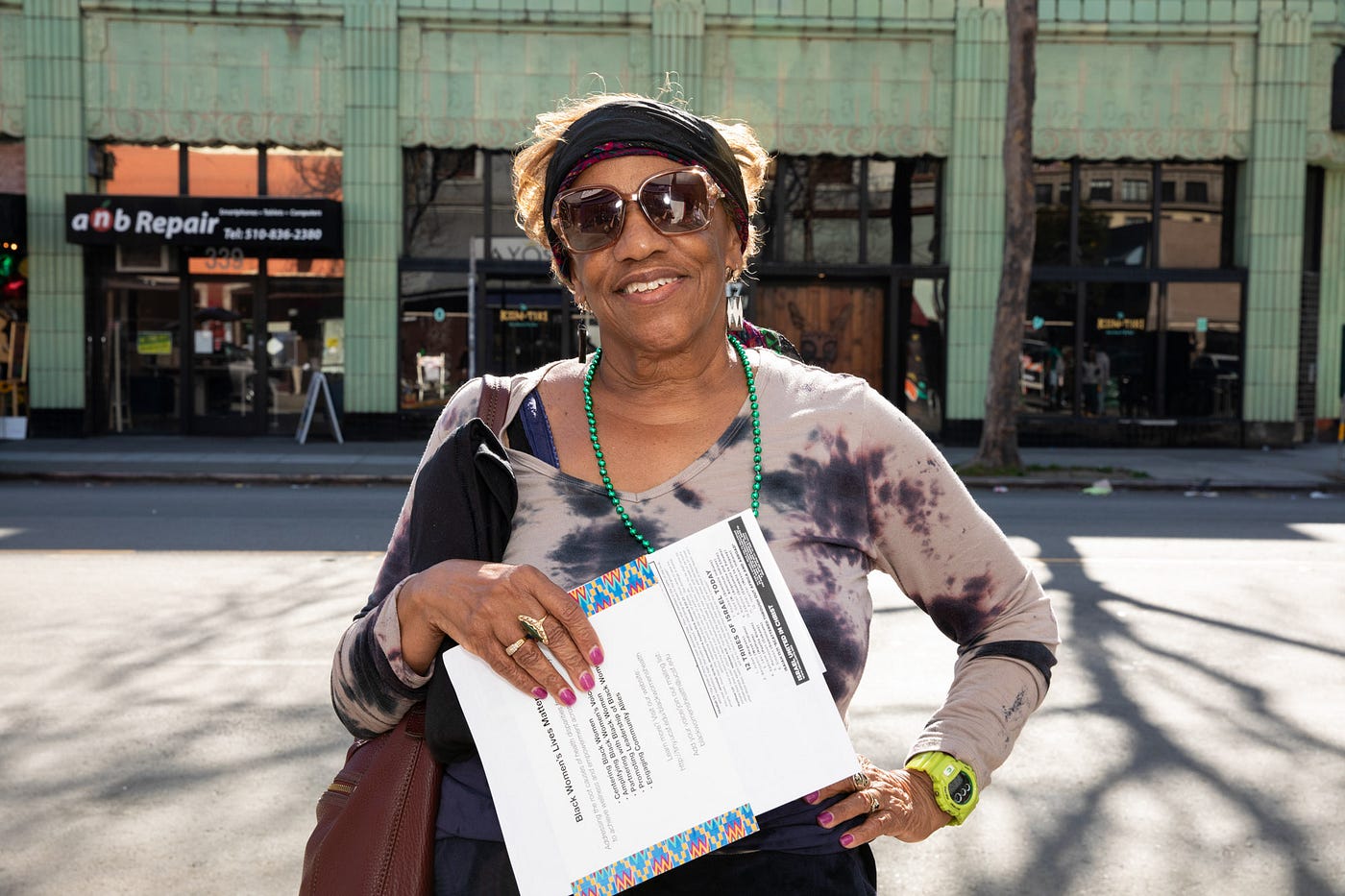
“I moved to Oakland in the 1950s when it was really segregated. Later on, I really wanted to buy a house here in Oakland, but the price of housing went up so eventually I settled on Antioch. I’m back here today because I think Black people need to support one another and support Black businesses and because I like seeing Black people together, happy, celebrating, and dancing.” — Judy Fleming



